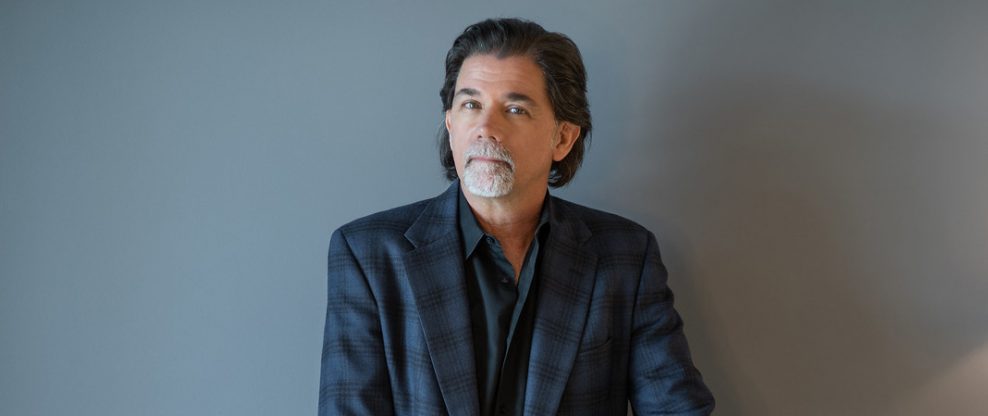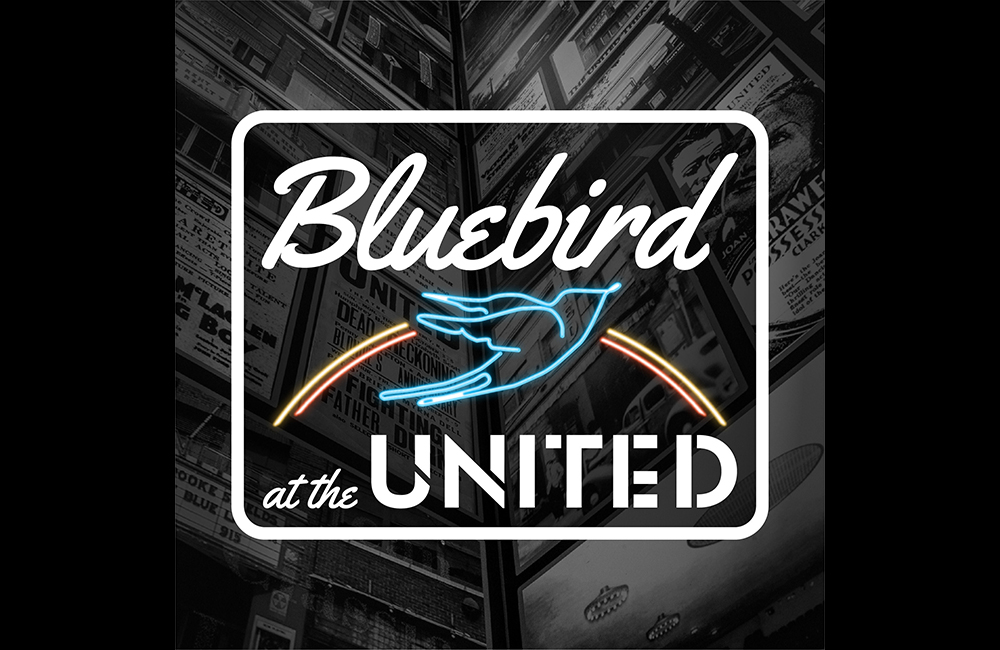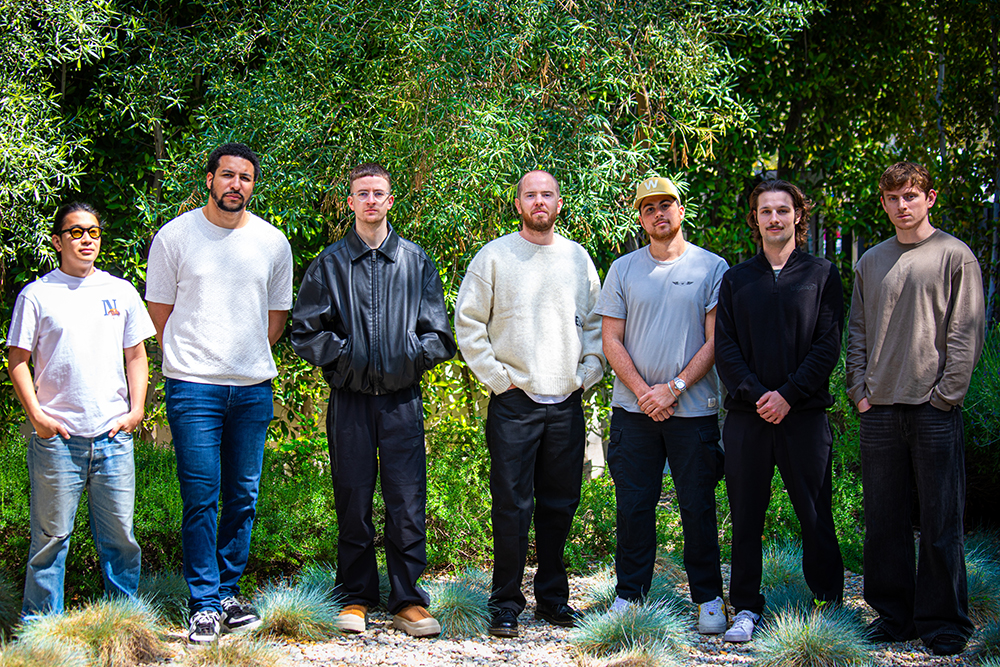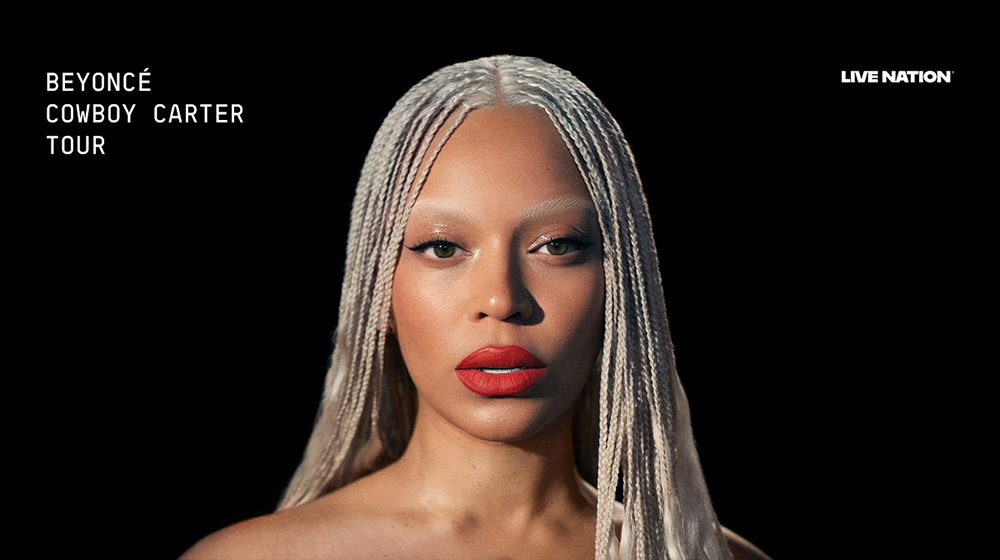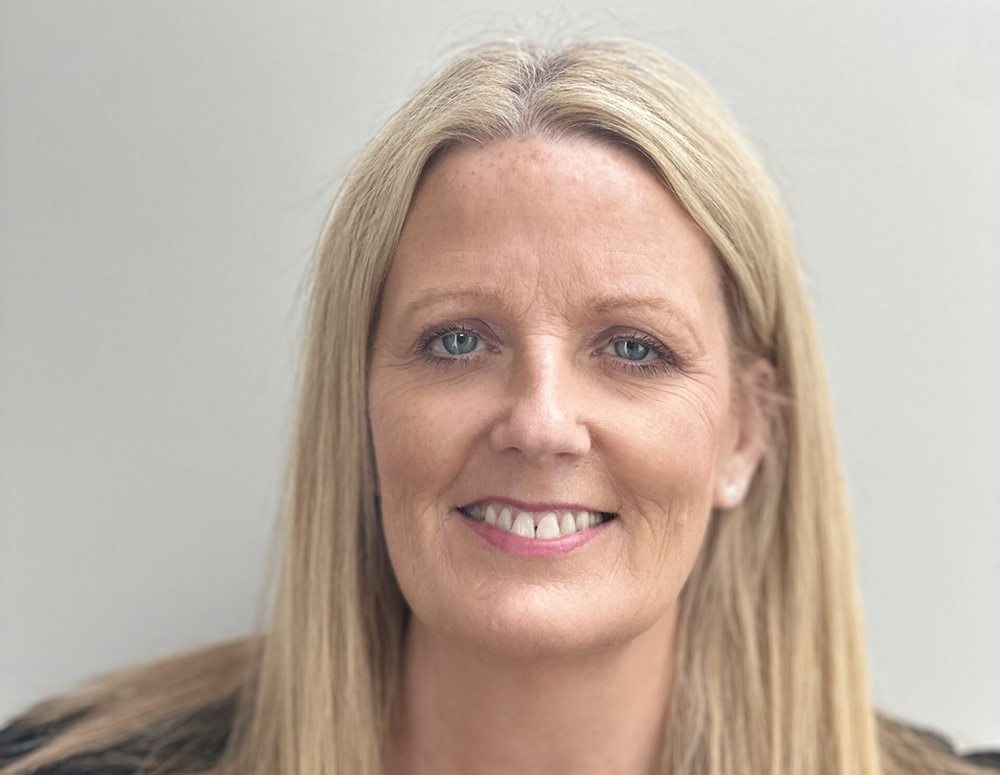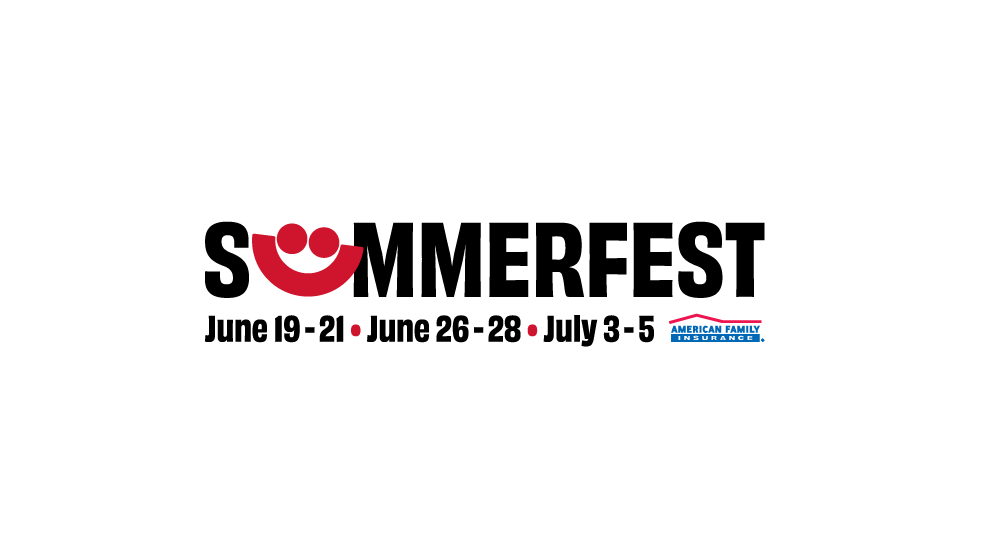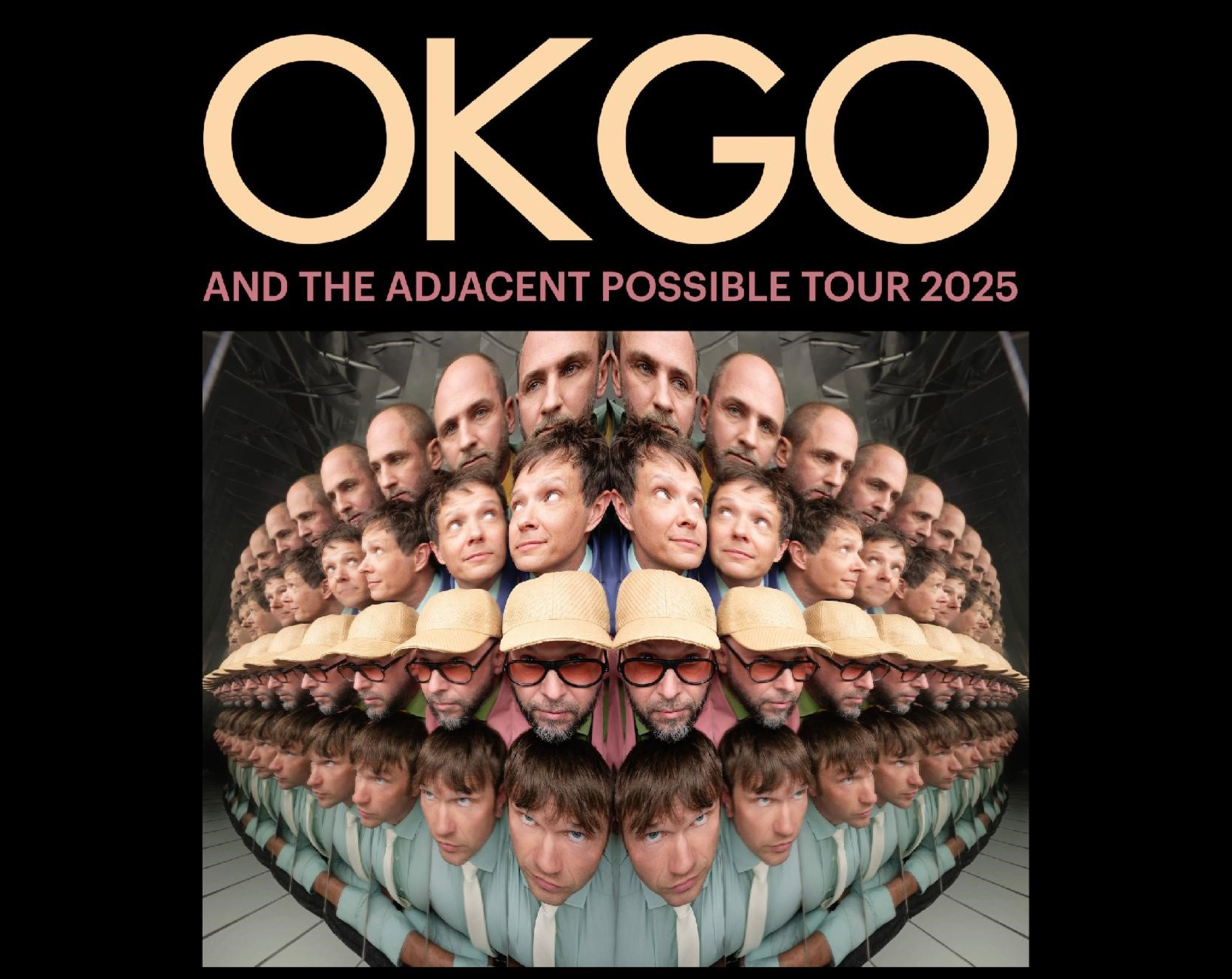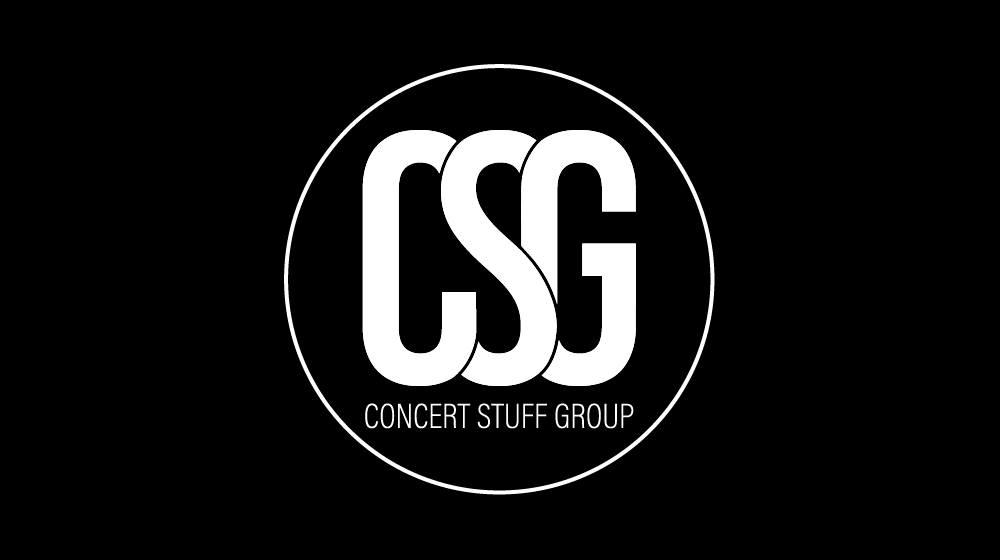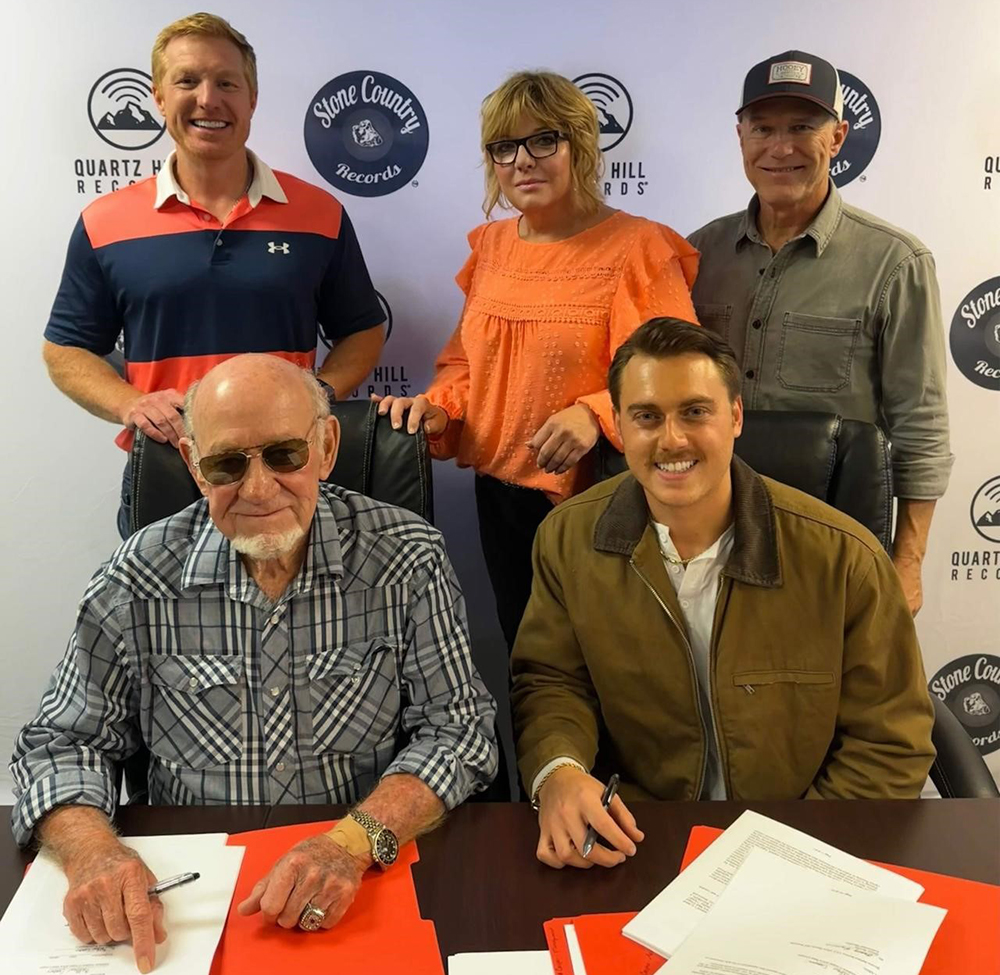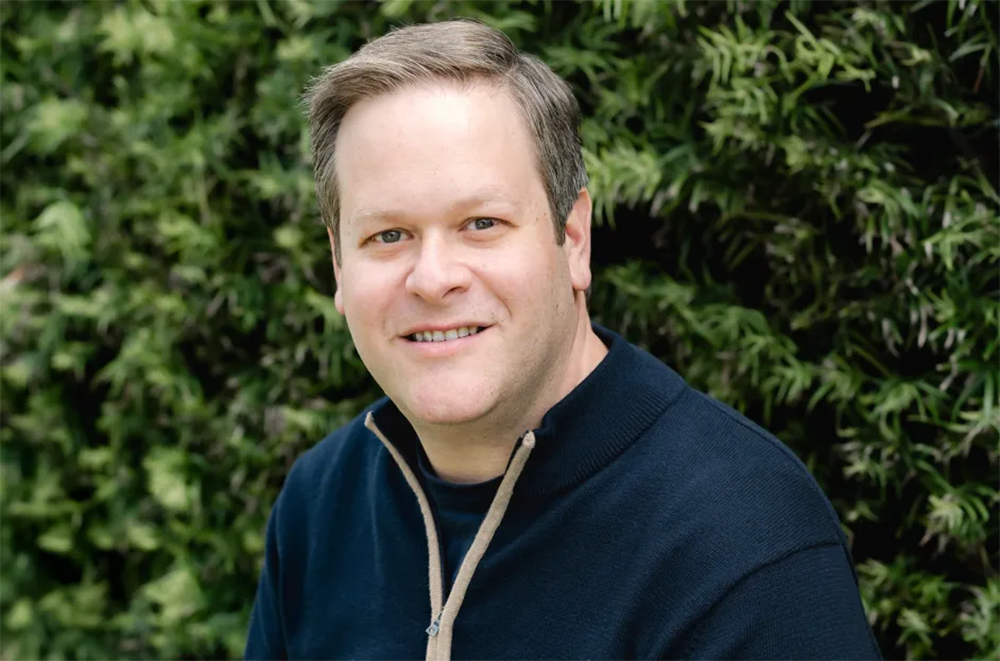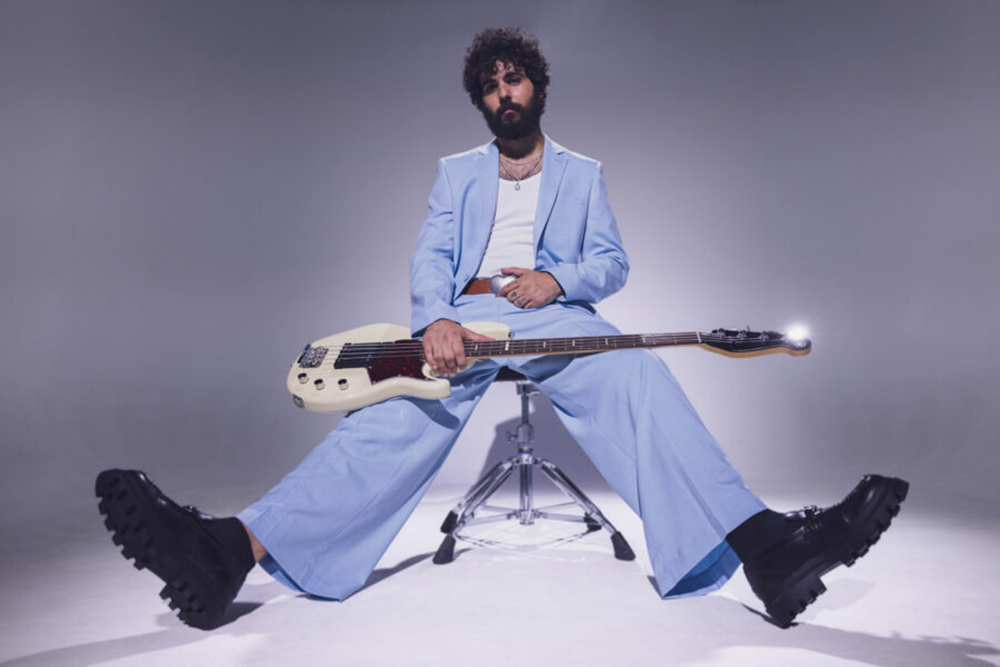This week In the Hot Seat with Larry LeBlanc: Steve Lassiter, president, Reliant Talent Agency.
Steve Lassiter called the Agency for the Performing Arts (APA) in Nashville home for 22 years.
He did a tremendous job in guiding the success of APA’s Nashville operations as its roster grew from about 8 artists to nearly 70 under a staff of 35 people.
Lassiter never once thought about leaving APA until 2020. He had worked his way up to become partner, senior VP, and the Co-head of Worldwide Music.
He just loved his co-workers, and the roster he represented, Travis Tritt, Crystal Gayle, Lee Greenwood, Little Texas, Kansas, Jackyl, the Gatlin Brothers, and others.
APA treated him well.
Unfortunately, the COVID-19 pandemic came along in 2020 and APA, along with numerous other agencies, was blown apart, forced to make do with stripped-down staffs, as layoffs and furloughs piled up, even affecting agents that had viable, ticket-selling clients.
Fortunately for Lassiter, the chaotic times created an opportunity for him, and former senior APA agents, Matt McGuire, and Heath Baumhor to regroup, and launch the Reliant Talent Agency.
The trio recruited agents Chris Burke, who leads Reliant’s corporate division, Chris Gaulke, Fred Hanson, Jeff Howard, Chris Looney, Frank Wing, Stephanie Myers, Ellen Larson, and assistant Jenn DiChiara; and they formed strategic alliances with other global branding agencies to maximize opportunities and deals for the clients they represent.
Today, headquartered in Nashville with offices in New York and Los Angles, the boutique agency houses a full staff and a diverse artist roster and offers full-service representation in TV/Film, commercials, voiceovers, and endorsements.
Reliant’s diverse roster includes Travis Tritt, Kenny Loggins, Jim Messina, Everclear, Saliva, Rodney Carrington, Phil Vassar, Yacht Rock Revue, Little Texas, Take 6, Average White Band, Sister Hazel, Jeremy McComb, Bob Newhart, Frank Foster, Jane Monheit, Candy Dulfer, Nelly, Patti Austin, Jonathan Butler, Kirk Whallum, Rev Run, and many others
Lassiter got his start in the music business as a production assistant at Sound Seventy Productions in Nashville in 1977, while finishing a Recording Industry Management degree at Middle Tennessee State University (MTSU).
After graduating from MTSU, he decided to pursue a career in the booking agency business.
He went on to work as an agent at International Celebrity Services (ICS) in Nashville (June 1981-May 1983); Variety Artists in Minneapolis (May 1983-Oct. 1983); Headline International Artists in Nashville (Jan. 1984-July 1985); the William Morris Agency in Nashville (July 1985-Dec. 1997); and arrived at APA in Nashville in July 1998.
With only 43% of Americans fully vaccinated do you have concerns that music venues and festivals may be opening too early?
There is a concern, but with the shows up to now that our clients are playing, local officials have been approving with social distancing and that kind of thing. I know that the Nashville Bridgestone Arena is now open at full capacity, and I don’t think that the local health officials would allow that if there was a concern.
Venue owners, promoters, and agents alike are keeping a close eye on vaccination rates, and infection trends to see if they are allowed to be open with significant capacity
I can only go by the local health officials making those decisions.
While I am encouraged by Australia, and its neighbor New Zealand fast-tracking the return of live music, I remain skeptical about the spate of shows and festivals planned over the summer, and Fall in North America.
Having fewer than 1,000 reported deaths due to Covid-19, Australia and New Zealand are far ahead of the world when it comes to live music reopening in a covid-safe way.
I have no plans to go to shows in arenas, clubs, or outdoor until probably the end of the year.
And I understand.
How much have you missed attending live shows?
I have missed them a lot. Last year, I had Travis playing. We had independent promoters that had money in hand ready to do dates as early as last Fall. The problem was finding a venue that would allow shows. For every 100 calls to venues that we’d make on a daily basis, trying to find that approved venue with cut-down capacity, social distancing, and that they were approved to have shows, for every 100 calls we would find, maybe, two or three.
We have had tour dates for Travis, and we have had to move them four times. Now it (the tour) is going to play at the end of April (2022). He just released a new record (“Set in Stone,” produced by Dave Cobb, on May 7th) on an independent label out of L.A. called Big Noise.
How many shows were you able to do?
From September to the end of 2020, we probably did 20 shows. Moving forward, as things started opening up in certain areas, we were finding more and more venues that were allowed to have shows with certain restrictions. Just on our roster this year, between March and April, we had 80 dates to place. They weren’t rescheduled dates. They were all new dates.
All different artists?
All different artists. It was all different artists. I have been out covering some of those shows from March 27th through to April 25th, I covered 21 clients in 2021.
That’s scary. I bet your wife just loved you being out on the road.
She was with me. But we were safe. We were very careful.
You stayed overnight in hotels?
Yes. We went to the Seabreeze Jazz Festival (on Panama City Beach, Florida, April 21-25th) and Fred (Hanson) had, I think, 9 clients performing there. So we decided to go down. It was the first time I had seen these clients perform; and I met every one of them. Talked to every one of them briefly. It was just a great way for me to meet them all. I got to talk to them for a minute, and thank them for their loyalty.
While Heath and Matt and the other agents with you have each retained much of their rosters, your own APA roster pretty well came with you, excepting Charlie Daniels who passed away on July 6th, 2020. It’s a great benefit keeping those rosters intact because so many of the clients are working acts.
If you look through our roster, it’s very diverse.
Much of Reliant’s roster I can figure out where they came from but veteran comedian Bob Newhart, how did he come to be at the agency?
That came from Chris Burke.
That is so cool.
Isn’t that cool? He’s 91 years old. He’s still doing 20 to 30 shows a year. The way that Chris explains the show is that Bob is not doing stand-up anymore. What he’s doing is he’s coming out, and he’s talking. He’s got video clips of a lot of the TV shows that he was on. He talks about his career, and then it is Q&A.
Carol Burnett did a very similar tour about three years ago. She played the Ryman here, and my wife and I went to the show. And that was exactly what she was doing. It wasn’t a scripted thing, and it wasn’t really stand-up comedy. She was just talking and she would show scenes from “The Carol Burnett Show.” She would set them up.
(“Stars in the House,” the daily live-streamed concert series created by Playbill correspondent. and SiriusXM Broadway host Seth Rudetsky, and producer James Wesley, welcomed cast members from the TV sitcoms “Newhart,” and “The Bob Newhart Show” on May 5th Guests included Bob Newhart as well as Peter Bonerz, Julia Duffy, brothers Larry, Daryl, and Daryl (aka Tony Papenfuss, John Voldstad, and William Sanderson), and director Jim Burrows.
Watch this fascinating program with Bon Newhart at: https://www.playbill.com/article/stars-in-the-house-welcomes-bob-newhart-julia-duffy-peter-bonerz-more-may-5
One intriguing new signing for the agency is country singer/songwriter, Jeremy McComb. In addition to being a touring musician, he has released four albums, charted on Billboard’s Hot Country chart, written songs for projects including the “Blue Collar Comedy Tour – One For The Road,” worked in radio as a programmer, and tour managed Larry The Cable Guy.
That signing is recent. Frank Wing brought him (and will be representing McComb along with Chris Gaulke). Jeremy is great. We all went to a Nashville Predators hockey game (at the Bridgestone Arena) a couple of weeks ago. The building manager David Kells is a good friend of ours, particularly with Frank, and he offered us a suite for the last home game. We went, and Jeremy went with us. It was the first time I had met him.
What a great kid.
Here’s something you never see anymore Larry, and I was so impressed with this kid. We are at the hockey game, and we are talking. He’s been with us a month or two now. His manager (Tony Morreale) was with him. I spent 20 minutes just chatting with him. But I observed him the whole night. He was making his rounds to every agent. He made sure that he talked to everyone. I spent 15 or 20 minutes with him, and welcomed him, and thanked him for coming. Last week—you never see this anymore—it was so cool, he sends me a handwritten note. How about that? Not an email. He sat down and wrote a little note. “Hey, it was great seeing you. Thanks for your time. Looking forward to the future,” blah blah blah. But you don’t see that anymore.
(Jeremy McComb recently announced the first leg of his summer Frontier Rock Tour with more dates to be added. He’s just released a nostalgic song “Under Glass,” Inspired by an old basketball team photo. McComb’s “Frontier Rock,” a 6-song collection, is being released on Average Joes Entertainment on June 18th, 2021).
When the news hit the Nashville music community that you, Heath, and Matt were opening a new agency, did your phones start ringing, and emails start piling up?
Yeah. We started getting inquiries from a lot of managers and artists. We have signed a few since we launched. It’s not country, but we signed Everclear, Saliva, and the Jam Band. Chris Burke brought in Kenny Loggins. We already had Jimmy Messina. Of course, that’s the first thing people said, “Are you planning a Loggins and Messina tour?” Well, we aren’t, at the moment anyway. But what it is Larry is that we wanted to get settled first and get our legs fully planted. We still aren’t really planted because we are still all working from home. I have started looking for some office space, and I hope to be in an office by Labor Day.
In downtown Nashville or East Nashville?
No. We are looking…I can tell you where we absolutely will not be, in downtown Nashville. We have been looking in Germantown (north of downtown). There’s another area west of Germantown called The Nations. We are looking there. And then the Music Row area. I have no problem with going to Music Row. And then the Berry Hill area (just south of the Eighth Ave. South). We did think about the East Nashville area. We did look at a couple of places there, but we want to be on either the West or the Southside. Germantown works because we have several agents that live north of Nashville. So that would work well with them coming in from the north. They don’t have to go around Nashville. Me and Frank Wing are the only two that live south of Nashville.
Reliant has opened outlets in New York and L.A. Right now, that’s staff working from their houses?
Yes. New York is Fred Hanson, and Chris Burke is in L.A. Three weeks ago, we hired a tour marketing person, Stephanie Myers, who is also in L.A. She was at APA.
And also worked at WME and Red Light Management. At this point, Reliant Talent Agency resembles a frat house. You are a bit short on women. With only Stephanie, Ellen Larson, and Jenn DiChiara out of a staff of 13. Will you be hiring more women?
Yes. and we just promoted Ellen to agent. She is now an agent. She is now handling clubs and small venues.
And Jenn?
Jenn is an assistant to me and Chris Burke.
C’mon, the agency world has changed so much.
Well if you looked at APA, we had a great agent who had been in the business for years and years and broke ground in the festival and fair business, and that was Bonnie Sugarman.
(Prior to joining Outback Presents in 2019 as community outreach coordinator, Bonnie Sugarman called APA home for 35 years. After joining in 1983 as head of fairs and festivals, she worked with Johnny and June Cash, Red Skelton, Tony Bennett, the Gatlin Brothers, Dottie West, Rosemary Clooney, Kenny Rogers, Tennessee Ernie Ford, Bob Hope, and Dolly Parton. She transferred to Nashville in the early 1990s to help oversee APA’s then-new Nashville office, and eventually rose to senior VP at the company.)
Reliant Talent Agency is not the only newly formed agency during the pandemic. Among the others are TBA, MINT Talent, Arrival Artists, and the Golden Gate Talent Agency. Most of these involve agents previously with WME CAA. and Paradigm Talent Agency; the latter due to its North American live music representation business being sold Casey Wasserman’s sports and lifestyle company.
Would Reliant Talent Agency have launched if there had been no pandemic? You had a high position at APA. You were a partner, senior VP, and finally named co-head of worldwide music in 2019.
You know Larry, in a million years, I never thought I would leave APA. Just to be perfectly honest. I was there 22 years. I was a partner, co-head of the music department with my friends Steve Martin and Bruce Solar. It was kind of laid out that my plan was to stay there as long as I could.
Did the departures from APA of Steve Martin, and Andy Somers last year have an influence on you leaving?
(Steve Martin was APA’s co-head of worldwide music, alongside Bruce Solar and Steve Lassiter, after being named partner in 2015. Andy Somers came to APA as president of concerts after he left The Agency Group in 2014, where he was a senior VP, and co-helmed the company’s Los Angeles operation, prior to the company being acquired by United Talent Agency in 2015.)
Not really. I was concerned that Steve left. He and I go way back. We worked at William Morris together back in the ‘80s. It did affect me, him leaving. He left in September (2020). At that time, I still had no thoughts of ever leaving. It didn’t really occur to me until later in the Fall when we had to, unfortunately, suspend people. Basically, out of a staff of 35 people, before the pandemic, and by August (2020) it was down to 12; and by late Fall we had to get rid of half of those people. Unfortunately, those were my key guys. My key team players.
You let people go knowing that they may never be coming back to the industry.
Yeah.
At the same time, APA Nashville had a roster of 70 artists with nothing going out the door.
Right. Some of my team had been with me for years. One guy has been with me for 22 years. I have had several that have been with me 15, 16, 17 years. The least amount of time that one of the agents now has been with me is 10 years. So when you think about the other independent boutique agencies that have sprung up through the pandemic, the difference between those agencies and Reliant is that those guys are pieced together. There might be a Paradigm agent with a CAA agent, and a WME agent, and a UTA agent. Whatever that scenario is. They have been severe competitors for the past 20 or 25 years. So they are coming together having been competitors and are now trying to get to know everybody, and figure out how to work together. They are sort of working from scratch. With Reliant, we have all been working together for 15 or 20 years.
Though with diverse backgrounds as well. Chris Burke worked at WMA, WME, and Paradigm, and Fred Hansen was at CEG, and Pyramid Entertainment.
Yeah, and it just all came down to suspending the team. We saw an opportunity, and it was time to make the move. It was that simple.
It sounds as if you all got together one night at your house, and the question arose, “What the hell do we do?” Obviously, you couldn’t continue long working with such a stripped-down operation. “Why don’t we start our own agency?” Was it as simple as that?
It was pretty much like that. We had never really thought about it.
But who wants to be the last man standing?
Right. And with the suspensions and everything else, the core team it was basically just two or three of us left. And we would have been responsible for booking 70 acts. Fortunately, it was a decision where we saw the opportunity, and it was a decision that we just had to make. As I said, I never had one inkling of thought of ever leaving APA. They were very good to me through the years as they were with everyone. I can’t say anything bad about them. They were very good. I developed some lifetime friendships there, even going back to Troy Blakely (the late head of music, and managing partner who joined APA in 1994, and passed away in 2018). He and I were really close friends, and had been since a long, long time. We were all upset with his passing. Troy and I would ride motorcycles together. We go back many, many years. So I just never had a thought about leaving.
Has the pandemic opened doors for booking agents to push deeper into increased representation? Has it enabled agents, perhaps, to have a broad and far-reaching perspective to deal with a multitude of career building opportunities outside traditional live event pathways, including content creation, film and television, or social media platforms?
Has the pandemic changed the role of an agent in a more competitive world to expertly evaluate diverse opportunities? Why can’t your reach be beyond the traditional model, beyond bookings of live events?
Well, it has always been in the back of our minds but as far as digging deep into an artist’s career and providing distribution and radio promotion and that kind of thing that is not being thought of.
I mean something along the lines of seeking out wider rights, such as with merchandise, and name and likeness rights, as well as forging new relationships with the Cameo, Twitch Soundtrack, and RoadNation platforms; and with ticketing, marketing, advertising, and promotion companies like GTC, TourDesign Creative, Ticketmaster, Bandsintown and Future Beat. Also, perhaps, further supporting radio station promotions by partnering with labels and managers in specialized promotions
Well, we’ve done that. To me, like you said, agents have forever been tasked with getting jobs. And that is still our main focus, but–and this is pre-pandemic—in the last two years or so, myself and lot of my colleagues, and a lot of my competitors, especially in Nashville feel that agents have morphed into being more artist development. We would sign artists before they would have a publisher. They don’t have a publicist. They don’t have a manager.
All they do is that they have a band and a van. And that is it.
Agencies may have been involved with seeking out labels but do not participate in the negotiation of contracts with those labels. This may change given how the pandemic has accelerated transformational activations resulting in the industry landscape having been remade.
For instance, the record industry is now asking, “Can we use live streams to augment and accentuate the in-person concert experience in a post-pandemic world?” Well, if they are involved in the income streams, then, why aren’t the agencies?
Live concert streaming?
Yes.
We don’t participate in that.
Yet, as the agent, you brought in the group, you booked the date, and therefore you should be part of the revenue sharing. But that isn’t the way it works. Kinda unfair?
It could be, but we have a revenue stream that the labels don’t participate in either. Now we can talk about 360 deals out there, and the labels do participate, but the agents aren’t giving up anything for the labels to participate. That’s on the artist.
Under your guidance, APA Nashville kept the number of developing artists rather low, less than 10% of the overall roster. This is because it takes considerable time to develop promising new talent, and start getting their tour history going.
At APA Nashville, you also took some of your young clients and presented them to Spotify yourselves because they obviously didn’t have the connections there.
Record labels, as we know, rarely show up on day one to sign an artist. They show up day three after the artist has been on the road developing a history of their own, and has established significant social media.
Development has increasingly fallen on those agents representing those new artists.
You are exactly right. Years ago, I was on an agents’ panel at an IEBA conference (presented annually by the International Entertainment Buyers Association). My old friend Mike Dungan (Chairman/CEO, Universal Music Group Nashville) was the moderator. One of the first things that he said was, “All you guys are agents, and at the labels, we look at you guys, you don’t have any skin in the game. We are the ones putting up the money.”
Your reaction?
I was like, “Hold on Mike. We aren’t writing cheques, but we are providing manpower, and blood and sweat equity in building these artists up to a point that you are interested.” And, that is kind of what has morphed into what I call as the agencies now being artist development departments. We are developing so they (labels) can get a bit of a history. They can get pick up on their Spotify numbers. I have sent numerous artists to Spotify. In the past several years I have introduced new acts to John Marx (Spotify’s global head of country who left in March 2021) numerous times. As far as just stepping out and getting the job, that is what we have done outside of those lanes in the past 10 or 12 years or so. A lot of times we are the first to find an act.
Often, as an agent, you find a promising developing act or even a veteran act, and when you start to get to know the manager, you’ll realize, “We are going to have to educate this person.” Quite often, you know you have a great act, but if you’ve got two to three years to achieve a breakthrough, it can be unsettling if you aren’t absolutely sure the manager can evolve or carry the weight. You don’t even know if the act will keep the manager. Often the person who brings the act in is shortly afterward dismissed. When there’s a green manager do you recognize that you have to educate them, and to almost be the manager?
Yeah, we have done that. It has happened. There are situations where that has been the case, and the green manager in a couple of these instances realized that the act was going to a level that is over their head.
They either jump out or become a co-manager with a more seasoned manager.
Yes. and I have seen it where they will bring in a more seasoned manager, but being that they started with the act and came up through the ground, there are a couple of situations where that green manager is still involved. Maybe, he or she is the core person day-to-day. We’ve seen that happen too. And we have seen the other way where the artist just leaves them and goes somewhere else.
Often the label might say, “We love the act, we love you, but we can’t work with this manager.” They either seek out a new manager or they pass on the act.
That hasn’t happened. I can’t recall a label ever saying that to us. I’m sure that they have to some of the other agents that have bigger acts. We were the first agents for Luke Combs. We found Luke Combs playing clubs in Georgia. We took him in. Kappy (Chris Kappy, founder, chief navigation officer, Make Wake Artists) was just the tour manager at the time and then became the manager. We still have a great relationship with Luke and Kappy.
(Chris Kappy was with Sixthman for 15 years, throwing music festivals on cruise ships. Then he met Luke, who had no team, no record label, and no agent behind him. It took him three months to convince Luke to hire him as his manager. First, he had Luke talk with three other managers. All three said Luke was never going to make it as an artist. Songwriter, yes. But never an artist. When Kappy started with Luke, he did several jobs. He was tour manager, production manager, business manager, merch manager, and then manager.)
We can find these (up and coming) artists. I have a couple of agents that just have great ears, and they are able to find these acts. They are continuing to find them. Our problem is not about finding them, and we can build them up to a level where are the labels are interested. Our problem is once they get to that level, and the labels are interested, our competitors come in, and they will say, “We’ve got this tour here for your act. But if you want the tour, you’ve got to sign with us.” That has happened to us numerous times.
Nashville is littered with the bodies of ex-managers and former agents thrown out by major acts promised better servicing elsewhere, including a Hollywood shot.
That’s all too true.
So you and your staff do talk to labels all of the time?
Sure. We are constantly talking to them about some of the young acts that, maybe, they should take a look at. Case in point, this was about two months after Randy Goodman went back to Sony (as chairman/CEO in 2015). We’ve known each other for 35 years. I ran into him at the carwash of all places. We were chatting, and I was saying, “How’s it going?” He’s like, “Well man, I’ve been there a couple of months now. I’m just trying to get my sea legs back, and we are just trying to figure this out.” I said, “Well, I haven’t bugged you. I haven’t called you or anything. I’m just giving you the chance to fit in a bit.” He then said, “Do you have anything that I should be aware of?” I said, “Well yeah, as matter of fact, I do.” He said, “Who.” I said Luke Combs.” And he goes, “Never heard of him.” I replied, “Well, you will.” And I sent him all of the stuff on Luke Combs, and within a year Luke is at Sony. So that is how we make labels aware of things that they aren’t quite aware of yet.
(Luke Combs’ studio album “This One’s for You,” released by River House Artists Columbia Nashville in 2017, debuted at #5 on the Billboard 200 album chart, and debuted at #1 on Billboard’s Top Country Albums chart where it stayed for 50 weeks, equaling the 1997 record of Shania Twain’s “Come On Over.” Comb’s “This One’s for You,” includes the singles “Hurricane,” “When It Rains It Pours,” and “One Number Away.”)
Are the Nashville-based labels working now with a lessened staff?
I have not heard through the pandemic of them laying off a lot of people. Before the pandemic, they seemed to be staffed up as always.
Today a lot of A&R executives primarily check out acts online and then follow up on them if they see promise. Is that the same with you and your staff?
We do check everything online. We are constantly approached by managers, publicists, and business managers. “Hey, you need to check this one out,” or “Hey, this one finished Top 5 on ‘The Voice.’” We are constantly deluged on a daily basis with inquiries from new acts.
The Reliant Talent Agency website has a daunting message: “Please note, we operate exclusively by referral and do not accept unsolicited materials or solicitations of any kind. Any unsolicited materials received will be returned, unread, or destroyed at our discretion.”
That is one of the strongest message I’ve seen warning about sending unsolicited music.
No, we don’t accept. They can make inquiries, and we will check it out. Then they can send something. The inquiries are one thing. You can find pretty much anything online. If the manager sends me an email and says, “This is so and so.” Well, you can get on YouTube or you can get on pretty much anywhere, and check them out.
The one thing we’ve seen a thousand times through the years is where a young artist comes to Nashville, and they have funding. Wherever the funding comes from, they have funding to cut a record. They have funding to get on the road. They have funding to be in a bus. All that is fantastic. However, it all comes down to what they do live as far as we are concerned.
We look at two things. We look at what would be live onstage in front of an audience. Not an industry audience, a real audience. We look at what they do onstage but more importantly, what is the response of the audience to what they do onstage.
My line is that you can have all of these things. You can have all of the funding, the big bus, and you have a recording, and you have this or that, and you have hired this great producer, and all that, but if you suck live, I can’t help you.
The traditional stardom route is that an up-and-coming artist or band plays a club for the first time, and draws 20 people. The next time, they draw 50 people, and the next time 150 people. Unfortunately, we now have acts with virtually no live track record, and they are seeking significant tour dates as an opener or seeking festival bookings. “Get me a Travis Tritt date.” It doesn’t work that way.
It doesn’t work that way. It still comes down to what you do live. The live business drives everything. That’s how people like Travis Tritt can still go out and work 130 or 135 shows a year.
You have been covering shows for a long time.
For over 40 years. That is part of my job. I don’t allow the agents to do what we call “the agent shuffle.” See the act before the show, stay for three songs, and then go and have dinner. No no no. You see the act. You stay for the night.
I’ve seen both senior agents, and label executives leave shows early.
I want to go back after the show. First of all, they see that I was there, watched the show. I always tell my guys, “When you do that and go back after the show talk about something in the show that you saw. That way they know that not only did you stay but you actually watched the show.”
You graduated from Middle Tennessee State University. What were you studying?
It was a program called Recording Industry Management.
At the same time, you were a production assistant at Sound Seventy Productions in 1977 at the age of 19. Even earlier, you were delivering sandwiches from a neighborhood grocery in East Nashville to a recording studio across the street.
My first influence in music came from when I was about 12 years old. I grew up in East Nashville. I was working in a grocery store, and Woodland Sound Studios was right across the street. I worked on Saturdays. I would work from 7 in the morning to 6 at night. Made 75¢ an hour. We had a butcher’s counter, and we made sandwiches. Really, really great sandwiches too. The studio would call and order all of these sandwiches, and the musicians would come over into the store, I was just really intrigued (by them). They were all dressed kinda funny, and had long hair. Back then, there was a lot of rock and roll being recorded in Nashville.
The Woodland Sound Studios attracted Neil Young, Kansas and Gordon Lightfoot. It was home base for local session players and a favorite recording studio for country artists including Ronnie Milsap, Barbara Mandrell, the Oak Ridge Boys, the Charlie Daniels Band, and others.
Nashville was a hard rock town for many years.
I know.
While Nashville still identifies as a country music hub, it has also become an incubator for pop, indie rock, and even hip-hop with a vibrant new club culture.
That’s true.
You also delivered sandwiches to the studio?
Yes. I remember it was a family grocery, Lehning Brothers Grocery and the Lehnings lived right down the street. In fact, Tim Lehning and I have been really close friends since we were both three years old. And the Lehman family still owns the building. Poppy, the grandpa, he was the butcher, and he would hand me a box of sandwiches and say, “Okay, go deliver these across the street to the studio, but don’t talk to anybody. Come right back. I am going to watch you. Come right back.” That was kind of my first influence.
Meet anyone famous?
I don’t think so. There were probably famous people who walked into the store I just didn’t know who they were. Then at 19, I started working at Sound Seventy Productions.
As a gofer?
Yep, production assistant. I did everything. I was in charge of the catering, and the hospitality. I made sure everyone got everything that they needed in the dressing room. I was also head of the T-shirt security. The names of the people back then that were my T-shirt security guys included Kix Brooks, David Lee Murphy, and Charles Dore. That’s where I met (longtime client) David Lee Murphy. There are numerous guys that were T-shirt security guys that went on to do great things. Brian Leedham. who ended up being production manager for Reba McEntire, and Blake (Shelton) for all of these years. We also went to MTSU together as well.
A promising young rookie booking agent where do they start out?
Typically, you start in as an intern/assistant, and you work your way up. And that is what those guys (Heath and Matt) did.
The agency’s mailroom wasn’t available to you?
Fortunately, Larry, I was never an assistant. And I was never in the mailroom.
Today there’s not much of a mailroom because communication is all emails.
Now, it’s being interns and assistants. Typically an intern/assistant that is hired at an agency in Nashville, 90% of the time they have a degree in the music business from somewhere.
I recall reading an industry interview with you a few years back from a Colorado cattle ranch while you were on vacation. Now that you are older, any thoughts of purchasing a farm and raising horses?
As much as I love horses it (a horse farm) is something that is just a lot of work. A lot of money. At least with cattle, you make money on cattle. With horses, we call them “hay burners.” But I love them.
Are you into that Western lifestyle?
No. It was just pleasure. I was approached a couple of times to join in—and they are prominent down South here—a reenactment event where they have Civil War reenactments.
Civil War Reenactments are living history events with Union and Confederate encampments with artillery, cavalry, infantry, naval and civilian units; reenactments of a battle and with programs on the Civil War medicine, surgery, and military history.
I was approached several times to do that. I was very interested in doing it although until I found that they are very strict. You have to have authentic boots. You have to have an authentic saddle, and bridle, and all that. There is a store about an hour outside of Nashville that carries all of that stuff. I was so interested that I went to that store to check everything out. Then I was like, “I’m not going to do this. This is going to cost a small fortune to do this.”
Larry LeBlanc is widely recognized as one of the leading music industry journalists in the world. Before joining CelebrityAccess in 2008 as senior editor, he was the Canadian bureau chief of Billboard from 1991-2007 and Canadian editor of Record World from 1970-80. He was also a co-founder of the late Canadian music trade, The Record.
He has been quoted on music industry issues in hundreds of publications including Time, Forbes, and the London Times. He is a co-author of the book “Music From Far And Wide,” and a Lifetime Member of the Songwriters Hall of Fame.
He is the recipient of the 2013 Walt Grealis Special Achievement Award, recognizing individuals who have made an impact on the Canadian music industry.

